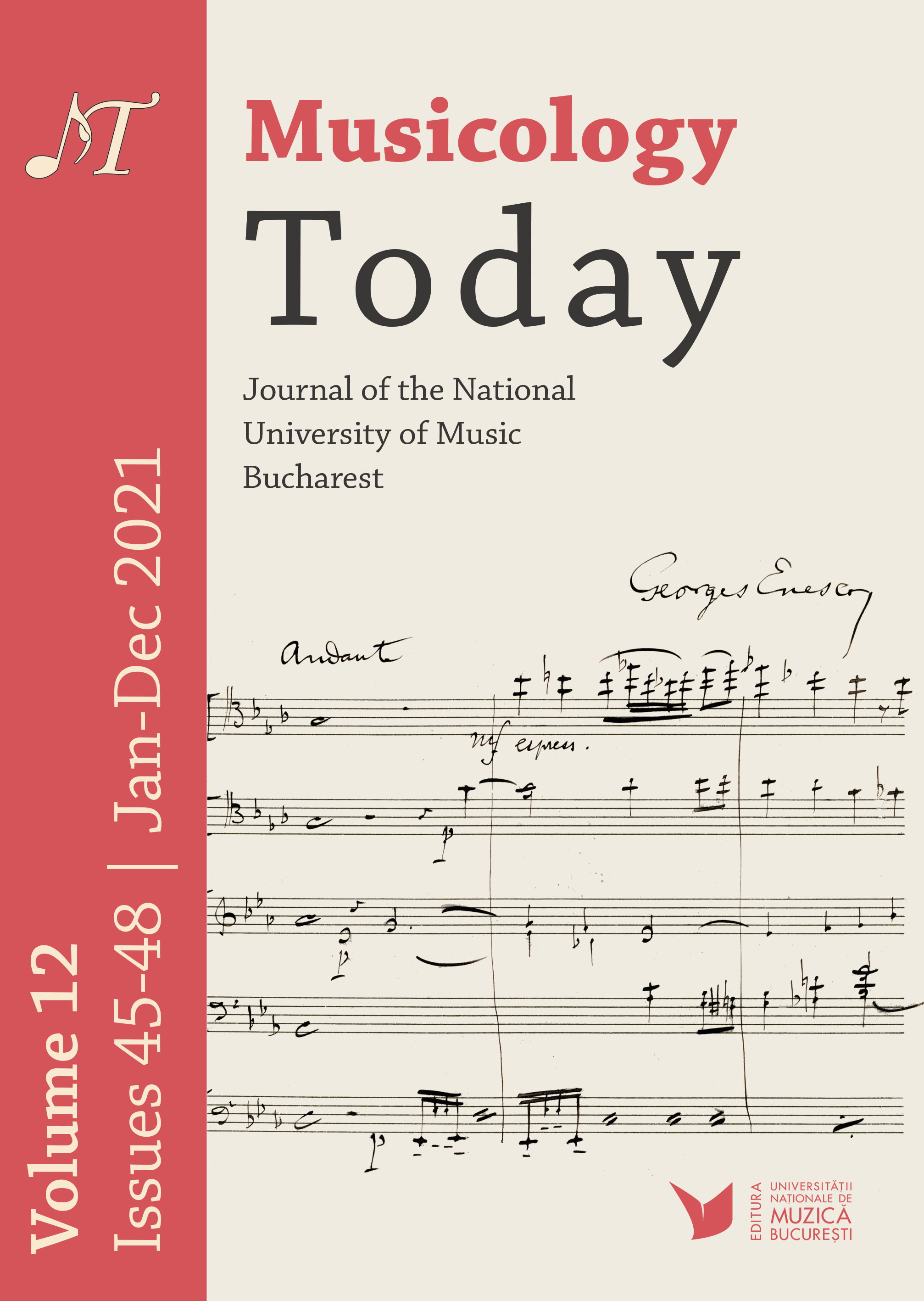Romanian Repertoires in the Programmes of the Bucharest Philharmonic in the Interwar, World War II and Post-War Period. Case Study: Mihail Jora
Romanian Repertoires in the Programmes of the Bucharest Philharmonic in the Interwar, World War II and Post-War Period. Case Study: Mihail Jora
Author(s): Desiela IonContributor(s): Ana Lica (Translator)
Subject(s): Cultural history, Music, Interwar Period (1920 - 1939), WW II and following years (1940 - 1949), Post-War period (1950 - 1989), History of Communism
Published by: Editura Universității Naționale de Muzică din București
Keywords: ideology; music criticism; Union of Composers; Communist Party;
Summary/Abstract: The radical changes that the communist regime imposed on Romanian society since the end of the World War II also affected Bucharest institutions such as the Conservatory and the Philharmonic. In the light of these transformations, the analysis of the Romanian repertoires in the Philharmonic’s programmes reflects the trends and ideologies in Romanian musical composition and criticism. Moreover, the ideological directions of the World War II and post-war period would dictate the frequency, quantity and genres of Romanian music in the Philharmonic’s concert programmes (for example, the preponderance of Russian and Soviet music to the detriment of Romanian music until the early 1960s, when Romanian music became mandatory in the weekly concert programmes). In this study I propose a brief analysis of Mihail Jora’s post-war compositional and conducting career, in comparison with his musical presence in the interwar period, reflected in the musical life of the Bucharest Philharmonic.
Journal: Musicology Today: Journal of the National University of Music Bucharest
- Issue Year: 12/2021
- Issue No: 48
- Page Range: 255-260
- Page Count: 7
- Language: English

